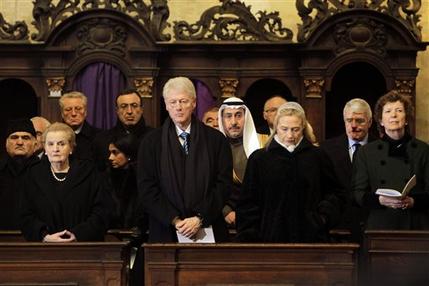Europe’s security is being threatened by a terrorist organization that many people have never heard of. Last week, al Qaeda in the Islamic Maghreb (AQIM), based in north Africa and active since 2002, posted pictures of five Europeans kidnapped in November and currently being held in Mali. Formerly known as the Salafi Group for Preaching and Combat, AQIM is an al Qaeda affiliate whose principal aim is to overthrow the Algerian government and establish an Islamic state governed by Shariah law in north Africa, Spain and Portugal. The group has a presence not only in Algeria but also in Mali, Niger and Mauritania. It has not yet solidified its foothold elsewhere in the Maghreb, including Morocco, Libya and Tunisia.
AQIM regularly funds its operations through criminal activity in Europe and the kidnapping of Western tourists and aid workers in north Africa, and it is now in possession of weapons galore from the fallen Gadhafi regime. It is also actively involved in courting north African immigrant communities in the west.
Though its list of targets originally included only the Algerian military and France, in recent years AQIM has expanded the list–to the government of Mauritania, for example. It has also taken to vocally supporting extremists in Afghanistan, Chechnya, Iraq, the Palestinian territories and Somalia, and has launched attacks against European, American and other Western targets across Africa. According to Abdelmalek Droukdal, AQIM’s founder and former leader, “Our goals are the same as al Qaeda the mother.”
European counterterrorism officials are reportedly increasingly worried about AQIM’s Europe-based cells, in particular in Spain and France. Spain is often mentioned in AQIM statements because of its “occupation of Ceuta and Melilla,” two small autonomous Spanish ex-clave cities on the north coast of Morocco. AQIM urges its followers to “take back Ceuta and Melilla by force, because they were taken by force.”
In the last few years, AQIM has increasingly targeted French interests. The group has made a financial windfall by kidnapping and later ransoming citizens of France and the EU. After five French nationals were kidnapped in Niger in 2010, Osama bin Laden declared in an audio message that the incident was in response to “France’s unjust treatment of Muslims,” and he linked the event to French military operations in Afghanistan.
Counterterrorism experts consider the group to be small–it numbers anywhere from 500-1,000 members–but they believe it has growing capabilities. Authorities have arrested militants with suspected ties to AQIM throughout Europe (including the U.K., Germany, Italy, Portugal, Spain and the Netherlands) and the United States. This, coupled with the organization’s own rhetoric, is perhaps an indication of its ever-increasing footprint and its attempt to broaden its ability to carry out attacks.
AQIM’s growing ties to other radical organizations in west and east Africa, along with its influence in the drug trade, should also be of major concern to European counterterrorism officials. The group has deepened its links with criminal organizations and militant groups involved in local conflicts in places such as northern Mali, between the Malian government and the Tuareg tribe, and in Niger, where a similar situation exists.
AQIM has increasingly expanded its capabilities beyond its traditional area of influence. The group has gone on the offensive by reaching out to Muslim communities in Europe and throughout Africa, and its influence among immigrant and second-generation Muslims in Western European cities is increasing. It is believed to be meddling in Nigeria’s Muslim-Christian conflict, and there is the potential for AQIM to collaborate with al-Shabab, the other major African al Qaeda affiliate that has wreaked havoc in Somalia.
There are several steps European officials could take to curb AQIM’s growth and highlight the issue internationally. Australia, Canada and the U.S. have blacklisted the group as a terrorist organization. By following their lead, the EU could demonstrate its understanding that AQIM is a terrorist outfit that threatens its own stability and that in north Africa.
European law-enforcement officials, at both the supranational and national levels, should increase cooperation with their north African counterparts in operations and intelligence sharing. Europol, whose mission is to assist member states “in their fight against serious international crime and terrorism,” has an important role to play.
Finally, AQIM is almost certainly using the formal and informal banking systems to move money, both within Africa and outside the continent. There are reports that it is using commodities and cash couriers to shift both value and actual funds into and out of Europe. As Europe develops a strategy to pursue AQIM, an attack on its financial networks and money-laundering capabilities will be key.
Keeping AQIM at bay and curbing its ability to operate must be part of Europe’s efforts to protect its nationals–both at home and abroad.
Avi Jorisch, a former U.S. Treasury Department official, is Senior Fellow for Counterterrorism at the American Foreign Policy Council in Washington, D.C.
**Originally published in the Wall Street Journal (Europe) on 20 December 2011

COMMENTS
Please let us know if you're having issues with commenting.